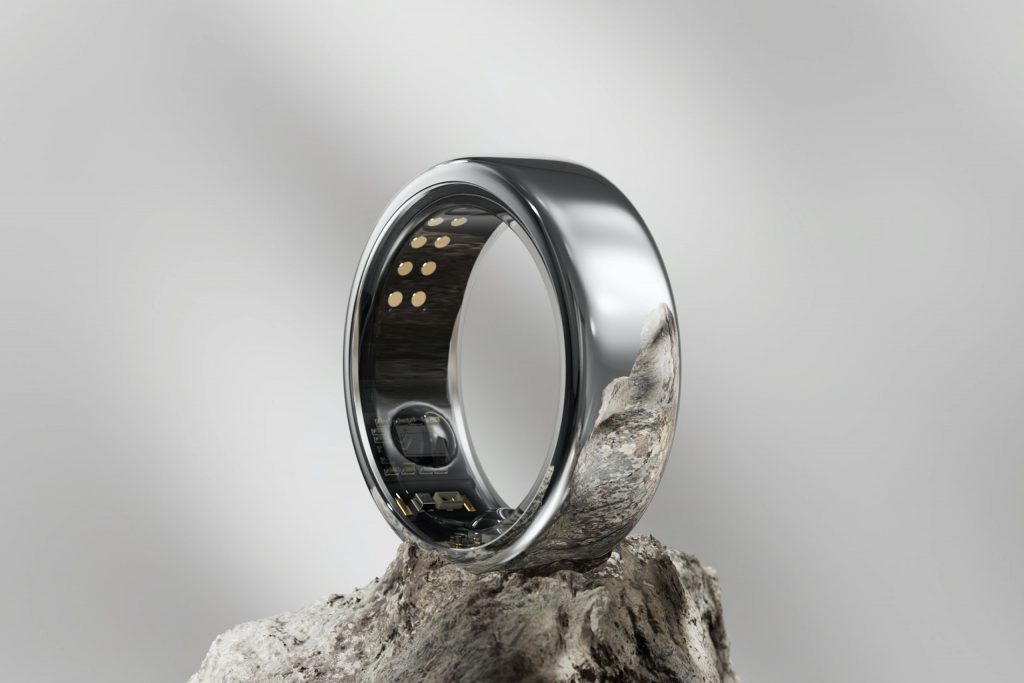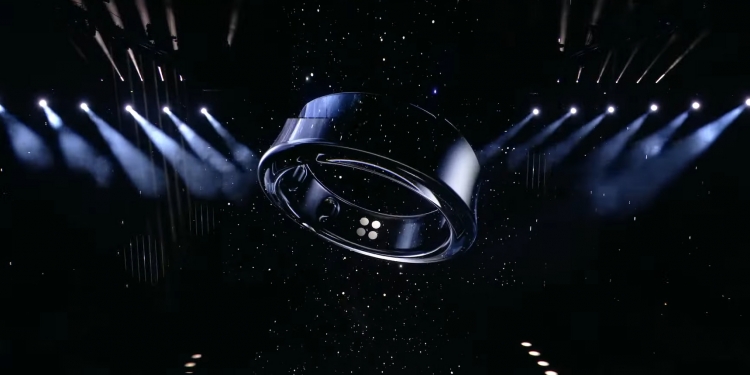The Samsung Galaxy S24 series may look very similar to last year’s phones, but at the Galaxy Unpacked event this morning, Samsung gave us a brief teaser of a genuinely new product it has been working on. The company has been rumoured to be developing a new wearable for a while, and it’s confirmed it with the reveal of the Galaxy Ring.
“Today, we’re taking the possibilities of Samsung Health to the next level by bringing Samsung Health’s cutting-edge innovations to a brand new form factor,” said Dr Matthew Wiggins from the Digital Health team at Samsung Research. “We’ve created a powerful and accessible health and wellness device, here to change the shape of future health like only Samsung can.”
No details have been revealed just yet, but Samsung did show off a ring packed with sensors and a slightly concave design. It’s likely the company will offer a variety of styles, materials and sizes when the Galaxy Ring reaches the market, given how personal such an accessory is.
You can also expect the device to provide usual health tracking metrics such as heart rate, ECG and body temperature, along with sleep and menstrual cycle tracking. It may also incorporate a pulse oximeter for measuring blood oxygen saturation (SpO2), something that was introduced to the latest third-generation Oura Ring.

The Galaxy Ring should also incorporate NFC for Samsung Pay and will almost certainly play nice with the SmartThings ecosystem. No information as to the release date, either, but we can expect it to make its full debut at another Unpacked event later this year, coinciding with the reveal of the Galaxy Z Flip 6 and Z Fold 6 foldables (and the Galaxy Watch 7).
Samsung is the first major tech giant to take the fight to Oura, a leader in the smart ring market. Advancements in technology are finally making this form factor a viable alternative to smartwatches like the Apple Watch and Samsung Galaxy Watch for those who would like something more discreet. This is evident in the sheer amount of competitors shown at CES this year, The Verge reported.








